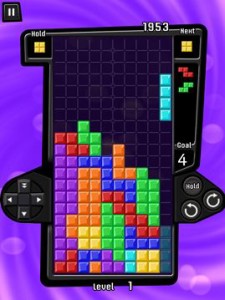A recent study conducted by the Mind Research Network utilized sophisticated brain-imaging techniques to study the relationship between video game play and brain functioning. In this study, co-investigators Dr. Richard Haier and Dr. Rex Jung found that adolescent girls who practiced playing Tetris for three months had increased cortical thickness, a sign of more gray matter in the brain, in effect making your brain bigger. The game Tetris was chosen because “it requires many cognitive processes like attention, hand/eye coordination, memory, and visual-spatial problem solving, all working together very quickly.”
Other research conducted at the University of Indiana by Vincent Matthews, MD and colleagues suggests that individuals who played games containing pro-social skills displayed increased activation in the prefrontal cortex, the brain’s center for executive functioning and problem-solving and can make your brain bigger. This data is consistent with our model at LearningWorks for Kids, where our basic premise is that video games facilitate the practice of executive-functioning, or thinking skills, by activating the prefrontal cortex of the brain.
While specific gameplay may improve skills such as selective attention and processing speed, playing video games alone will not necessarily make you smarter in your daily activities. In order to transfer these thinking skills from the game to the real world requires deliberate, mindful efforts on the part of the player to recognize and reflect on the skills they use in the game. Connecting these thinking skills to the real world is enhanced by using the game as a teaching tool.
As our techniques for brain imaging become even more sophisticated, we anticipate that there will be many additional studies indicating both positive and negative impact of video gaming on brain functioning. Sorting through the data will be important, so that we can find ways to use these popular technologies to improve brains. Whether we find games that “rot your brain” or “expand your mind”, there is no doubt that we are going to find more and more evidence that video game play changes the brain.





